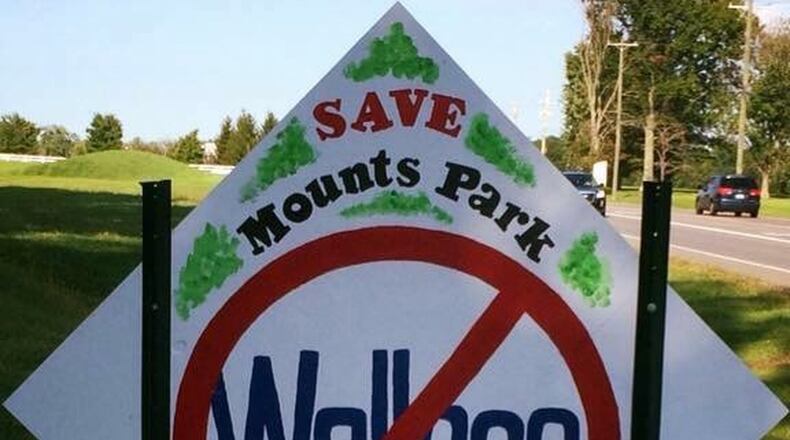The lawsuit cites one other similar case, on appeal in the U.S. 4th Circuit Court of Appeals in Virginia.
Legal experts indicate the legal questions are fresh and undecided.
“There have been only a handful of cases,” Bennet G. Kelley of the California-based Internet Law Center said.
Jack Greiner, a Cincinnati-based media lawyer, added, “The law is settled that a person cannot be denied the right to speak in a public forum based on the person’s viewpoint. It is a little unsettled as to whether and under what circumstances a social media page constitutes a ‘public forum.”’
The lawsuit is related to management of a Facebook site where Wallace interacts with residents about village issues, but which also features re-election materials. He also has another web page devoted to his campaign.
RELATED: Federal lawsuit filed against township trustee over Facebook page
Since the filing of the lawsuit, some of those who were unable to have regained the ability to comment on the Facebook page in question.
Two of the residents in the lawsuit, Katy Wuest and Lisa Wilson, said they had been “unblocked” since the lawsuit was filed. However Wilson said others are still unable to comment on the site.
Wallace did not respond to requests for comment and has not responded to the lawsuit, filed on Sept. 5 in U.S. District Court in Cincinnati.
He is one of seven candidates running for two seats on the three-seat board of trustees in Hamilton Twp., a thriving, politically active township, south of Lebanon.
MORE: Intergenerational community gets $9 million in state tax credits
Also running are Darryl Cordrey, Cadi Kelly, Nathan Myers, Joe Rozzi, Roxan Tarnowski and Kim Lukens.
RELATED: Warren County GOP divided heading toward leadership vote
Wuerst and Wilson are critics of the trustee and display anti-Wallace signs on their Facebook profiles.
MORE: Huber Heights candidates speak out on Facebook fights
Danny Wilson, Kyle Riley and Amanda Johnson are also parties to the lawsuit. Their lawyer is Joshua Engel.
“Recently, a federal court in Virginia found that a local politician had violated the First Amendment when she temporarily banned a constituent from commenting on her Facebook page. This case raises substantially similar issues,” Engel said in comments posted on his law firm’s website.
The Virginia case involves a Facebook page maintained by Phyllis Randall, chair of the Loudon County Board of Supervisors. Randall temporarily blocked a resident named Brian Davison after a "contentious exchange" during a town hall debate, Greiner wrote in a recent article on the case published on his firm's website.
“Mr. Davison is the only person Ms. Randall has ever banned from her Facebook page. And by the next morning, she thought better of it, and unbanned him,” Greiner added in his article.
Randall argued the page was “purely personal,” thus not subject to a First Amendment challenge. The Virginia court disagreed.
“By prohibiting Plaintiff from participating in her online forum because she took offense at his claim that her colleagues in the County government had acted unethically, Defendant committed a cardinal sin under the First Amendment,” the court said in its ruling.
MORE: Dayton police called about woman posting about boyfriend on Facebook
Although some of Wallace’s critics have been unblocked or unbanned, Engel indicated his lawsuit would not be withdrawn.
“We won’t be dropping the suit because we can’t confirm what he has done to unblock people and, more importantly, we need to make sure this is not done in the future,” Engel said via email.
Facebook didn’t respond to messages seeking comment.
Greiner likened Facebook to a landlord in this case.
“The limits imposed on a public official are a function of the First Amendment. If a congressman leased office space in a private office building and advertised ‘office hours’ open to constituents, but banned certain constituents from visiting during that time solely because of their viewpoints, it wouldn’t be a lease issue, and it wouldn’t be the landlord’s problem. But it would be a First Amendment issue,” he said.
About the Author

